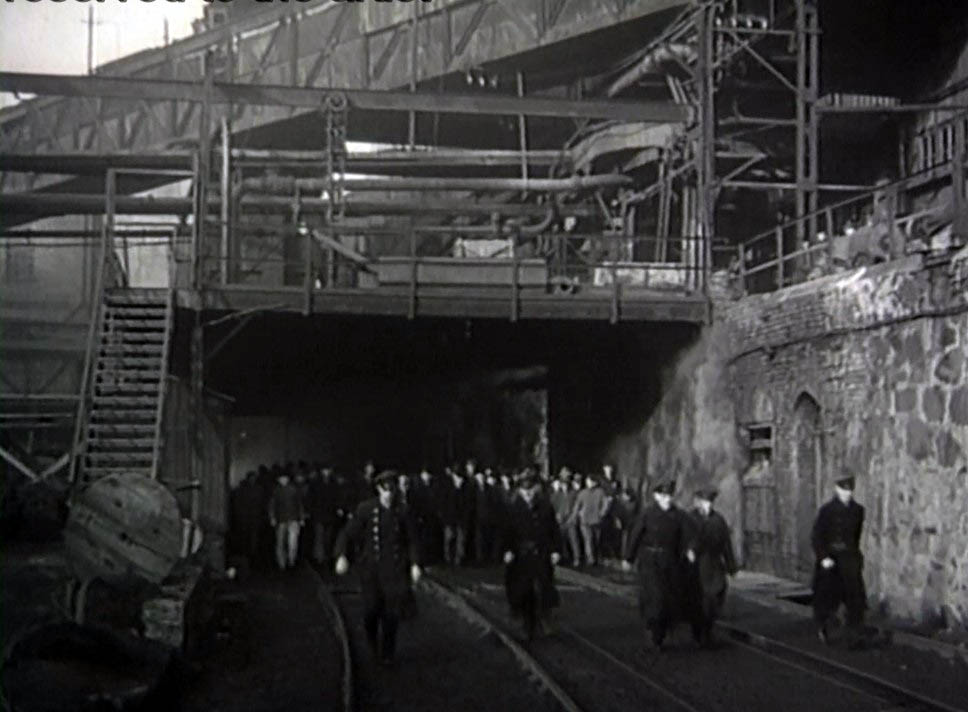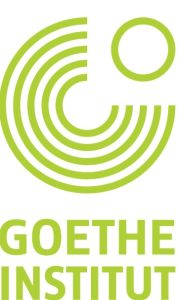10/07/2025 - 17/07/2025

The 2025 MoCA Skopje Summer Film Programme presents “Is There a Desert in the Middle of the City?”, a film festival that navigates urban landscapes and the ever-shifting terrains of gentrification, (speculative) urbanism, real estate, and the tourist industry in the face of global capitalism. The films explore how such phenomena shape—and scar—cityscapes, rendering cities contested places. The film programme brings together threads that link high-rise construction sites, ever-expanding malls and hotels, fences, scaffolding, paint and cracks in the walls, factories of modernity and their ruins, along with the lives of those affected by and participating in urban change in Beirut, Shanghai, Pernik, Lisbon, Athens, Marseilles, Howrah, and elsewhere.
The selected films refer to the documentary form to different extents. They follow “seismic” gentrification and touristification, but also forms of resistance or survival in cities that are being transformed into vast dormitories for visitors. They tackle impoverishment and precarious work in construction and in tourism, discrimination, displacement, and confinement. They closely examine the aesthetics and materiality of the phenomena they record, through sound, cityscapes, and found material. Alongside the processes and politics of remembering and forgetting in public spaces, the films also touch on interrupted, often intimate, memories of other places, times, and people. What are the everyday realities beneath the rhetoric of progress, comfort, and expansion? How does global capitalism build—and unbuild—the cities we inhabit? How does it reshape urban landscapes, labor, and everyday life?
Curator: Sofia Grigoriadou
Thursday, 10/07/2025, 20:30 – 21:40
SHANGHAI, ATHENS, LISBON

Shanghai
Passage • director Di Hu • China • 2016 • 11 min
This film depicts architectural and urban research of a specific area in Shanghai. The bridge you see in this film was renovated before the Shanghai World Expo in 2010. It is a flimsy copy of the Alexandre III bridge, beside which is the Carrefour supermarket which was already decorated a few years before with a gigantic mural of Parisian life scenes and occupied the location of the Grand Palais. The reason why I chose to film this area is that it strongly resembles the Grand Palais area in Paris. From an emotional standpoint, I have a deep attachment to both cities, having lived in both for many years. On the more practical side, I have made this film to express my concerns regarding the mindless globalisation of Shanghai, which has transformed the city into a science-fiction-like landscape through the blending of socialist and hypermodern elements.
Di Hu is an artist-researcher based in Dublin and Shanghai. His work across film, video and photography investigates the legacy of the cinema through interpretation of forms, codes and narratives of films. His artistic practice also examines the effects of the dominance of technology in society.

Athens
Sleeping City • director Dimitra Kondylatou • Greece • 2023 • 10 min
A fictional short story about a city turning into a dormitory: everyday activities disappear in this city, where the visitors (sleepers) arrive to sleep, and the inhabitants stay awake, in order to work in the dormitory. When, for various reasons, everyone loses their sleep, emerges confusion about the city’s function and identity. The visual narrative of the video consists of images, relevant to the rapid expansion of the tourist activity in Athens: the documentation of façades in the city center, and of buildings turning into hotels, archival material from the Hellenic Literary & Historical Archive (E.L.I.A.), advertising spots of the National Tourism Organization (E.O.T.), articles, and video performances.
Dimitra Kondylatou lives in Athens. She works across video-making, editing, writing, and hosting. She is interested in the limits of art and its entanglements with tourism and everyday life. Her methodology is informed and crosses boundaries with other disciplines, through her participation in art residencies and collective projects, and the presentation of her work in festivals, exhibitions, conferences and publications.

Lisbon
Terramotourism • Left Hand Rotation • Portugal • 2016 • 43 min
Directed and produced by Left Hand Rotation collective, Terramotourism is a subjective portrait of a city and its transformation during the last 6 years. On 1 November 1755 an earthquake destroyed the city of Lisbon. Its impact was such that it displaced man from the center of creation. Its ruins legitimized Enlightened Despotism. Lisbon today is trembling again, shaken by a tourist earthquake that transforms the city at cruising speed. Its impact displaces the inhabitant of the center of the city. What new absolutisms will find their alibi here? As the right to the city collapses, drowned by the discourse of identity and the authentic, the city creaks announcing the collapse and the urgency of a new way of looking at us, of reacting to a transformation, this time predictable, that the despair of Capitalism pretends inevitable.
Left Hand Rotation is an artistic collective active since 2005 that develops projects that articulate intervention, appropriation, recording and video manipulation. Each action of the collective has a strong awareness of the importance of the audiovisual record, both for its value as raw capture, and for the potential of each video clip to become language units whose combination and manipulation enables the transmission of complex messages based on daily details.
Tuesday, 15/07/2025, 20:30 – 22:30
MARSEILLES, BEIRUT

Marseilles
In the Middle of the City There Was the Desert • directors Joachim Gatti & Gaël Marsaud • France • 2019 • 13 min
A film that brings together a short story by Elio Vittorini, published in 1941, and the daily life of La Plaine, a neighborhood in Marseille undergoing reconstruction. Erected by the city council to prevent any occupation, a huge wall cuts the neighborhood off from its heart and besieges it from within. At the foot of the wall, the words of the Italian poet and resistance fighter find a new and strange resonance.
Joachim Gatti is an artist whose practice combines documentary experience, militant investigation and collective creation. He develops projects anchored in specific contexts – neighborhoods, gardens, health centers, etc. His work takes many forms: video, radio, writing, woodcuts.
Gaël Marsaud, a political scientist and filmmaker, explores the intersections between art and politics. His films, often set in rapidly changing urban contexts such as Marseille and Santiago, examine civic mobilizations, transformations of public spaces, and the challenges of preserving memory.

Beirut
Taste of Cement • director Ziad Kalthoum • Syria, United Arab Emirates, Germany, Lebanon, Qatar • 2017 • 85 min
In Beirut, Syrian construction workers are building a skyscraper while at the same time their own houses at home are being shelled. The Lebanese war is over but the Syrian one still rages on. The workers are locked in the building site. They are not allowed to leave it after 7 p.m. The Lebanese government has imposed night-time curfews on the refugees. The only contact with the outside world for these Syrian workers is the hole through which they climb out in the morning to begin a new day of work. Cut off from their homeland, they gather at night around a small TV set to get the news from Syria. Tormented by anguish and anxiety, while suffering the deprivation of the most basic human and workers rights, they keep hoping for a different life. Winner of the Golden Sesterce for Best Feature Documentary at Visions du Réel 2017 and nominated to the German Academy Awards 2018.
Ziad Kalthoum is a Syrian filmmaker, scriptwriter and film consultant currently living in Berlin. In 2012, he began working on his first feature film “The Immortal Sergeant” (premiered at the Locarno Film Festival, 2014) while serving a compulsory military service. Refusing to fight his own people, he deserted from the Syrian Army in 2013 and fled to Beirut where he started to work on “Taste of Cement”. He is currently working on his feature film, “Last Trip”.
Thursday, 17/07/2025, 20:30 – 11:00
NEW YORK, HOWRAH, PERNIK

The Factory Gates
Workers Leaving the Factory • director Harun Farocki • 1995 • 36 min
Workers Leaving the Factory – such was the title of the first cinema film ever shown in public. For 45 seconds, this still existent sequence depicts workers at the photographic products factory in Lyon owned by the brothers Louis and Auguste Lumière hurrying, closely packed, out of the shadows of the factory gates and into the afternoon sun. Only here, in departing, are the workers visible as a social group. But where are they going? To a meeting? To the barricades? Or simply home? These questions have preoccupied generations of documentary filmmakers. For the space before the factory gates has always been the scene of social conflicts. And furthermore, this sequence has become an icon of the narrative medium in the history of the cinema. In his documentary essay of the same title, Harun Farocki explores this scene right through the history of film. The result of this effort is a fascinating cinematographic analysis in the medium of cinematography itself, ranging in scope from Chaplin’s Modern Times to Fritz Lang’s Metropolis to Pier Paolo Pasolini’s Accattone!. Farocki’s film shows that the Lumière brothers’ sequence already carries within itself the germ of a foreseeable social development: the eventual disappearance of this form of industrial labor (Klaus Gronenborn).
Harun Farocki (1944-2014) was a German filmmaker and lecturer in film, author of over 90 films, productions and numerous installations. He was writer and editor of the magazine Filmkritik, Munich. His work has been exhibited at the Carnegie International, Carnegie Museum of Art; documenta 12, Kassel; the Tate Modern; the Museum of Modern Art, New York City; and elsewhere.
The film is kindly offered by the Goethe-Institut Skopje


New York, Howrah
Cast in India • director Natasha Raheja • India, USA • 2014 • 26 min
Iconic and ubiquitous, thousands of manhole covers dot the streets of New York City. Enlivening the everyday objects around us, this short film is a glimpse of the working lives of the men behind the manhole covers in NewYork City. In Cast in India, Natasha Raheja raises questions around the disparate conditions that shape the geographies of production of everyday urban objects. How does the built infrastructure of New York City conceal the labor infrastructure on which it stands?
Natasha Raheja is a Brooklyn-based filmmaker. She is currently pursuing a PhD in Sociocultural Anthropology at New York University with a Certificate in Culture and Media. Her research interests are in the areas of migration, material flows, and belonging.

Pernik
Cracks • director Dimitra Kofti • Germany • 2018 • 55 min
Shiny supermarkets stand next to dilapidated factory buildings in the Bulgarian city of Pernik, one of the Balkans once most important industrial areas. The film explores daily life experiences and memories in a city marked by a history of industrialization and deindustrialization, where multiple epochs and teleologies of modernity coexist. People’s lives are filtered by Pernik’s industrial rise and decline and by the shift from the socialist to the post-socialist era. The narrative focuses on people’s working lives, through which stories unfold: current work practices, memories from the abandoned factories, migration stories, narratives about precarity, strikes, daily coping strategies. The ‘cracks’ are apparent in the urban landscapes and in the narratives. They are employed in the film as metaphors that underline the meeting points of multiple temporalities; cracks inscribe changes and epochs while they also connect them.
Dimitra Kofti is an anthropologist interested in work, precarity, shifting temporalities, and film. She has conducted research on changing work relations, in the context of flexibilisation of labour in post-socialist Bulgaria. She is an assistant professor at the Department of Anthropology, Panteion University of Social and Political Science (Athens, Greece).
The Museum of Contemporary Art Skopje is grateful for the help in the realisation of the program to the Goethe-Institut Skopje, Delphine Leccas, Videoart Miden, Zhivko Grozdanoski